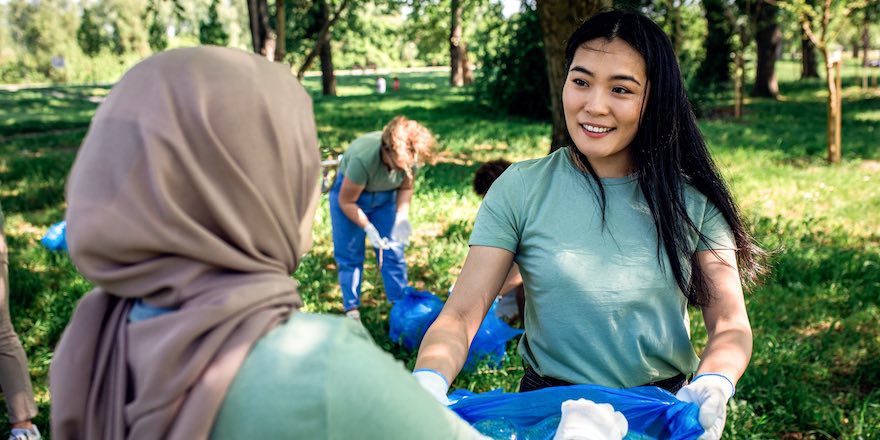Your Experiential Learning Opportunities at Coastal Carolina University
Enhance your academic experience by adding some experiential learning opportunities to your time at CCU.

Experiential learning is a way for students to dive deep into their field of study by putting it to use outside of the classroom, learning more through research, or enrolling in classes that take learning to the next level.
All Coastal Carolina University students must complete an EL course as a graduation requirement to enhance their academic experiences. So, let’s take a look at what kinds of experiential learning opportunities are available to you.
1. In your classes
In the classroom, students gain the theoretical knowledge to solve real-world problems by asking questions, challenging their professors and classmates, and elevating their thinking. Through project-based experiences, students connect the ideas they encounter with the real world.
Discover how experiential learning in the classroom helped Alex Symcak, a Graphic Design and Photography student.
2. Internships
Gain experience outside of the classroom work setting while observing your future career in action.
We encourage students from all majors to participate in internship experiences to gain professional skills and explore career paths. Students can work as paid or unpaid interns during their fall, spring, or summer semesters and earn credit by enrolling in an internship course in their field of study with their department faculty internship coordinator. CCU Career Services can help students find internship options and develop effective resumés, cover letters, networking, and interview skills to help them succeed in the search process.
More than 1,500 internship opportunities are available to CCU students. So, if this sounds like a good option for you, check out these internship highlights by major.
3. Research
Over 700 undergraduate students take research-driven courses to learn more about their fields.
Whether you’re ready for research depends on your willingness to take intellectual risks, your interest level and persistence in pursuing a focused project, and your level of background knowledge. If you’re intellectually curious about a topic and are willing to work hard to learn and master knowledge and new skills, then you are probably ready for a research experience.
Participating in undergraduate research can provide opportunities for you to:
- Work one-on-one with faculty, graduate students, and post-doctoral researchers;
- Contribute to the creation of new knowledge;
- Sharpen your critical and analytical thinking skills;
- Complement and extend your classroom learning;
- Enhance your confidence in your abilities;
- Prepare for graduate-level study or a research job; and
- Explore your interests and clarify your career goals.
4. Service learning
Earn credit in an educational experience that combines community service and academic learning.
Students can experience learning that has the potential to be "life-changing." Often there are opportunities to interact with individuals and situations in the community in ways that could never occur in a classroom setting. Students involved in service learning are more engaged in their education and receive an enhanced academic, cultural, and social perspective. Reflection is a critical component of the service learning experience.
Students are expected to:
- Participate in an organized service activity that meets identified community needs.
- Enroll in a course that requires a minimum of 15 hours of faculty/agency supervised service activity.
- Reflect on their experience and its impact on the community and their relationship to the world around them.
- Develop greater self-awareness, social responsibility, and desire for civic engagement.
- Learn to care more about the needs others.
- Develop the attitude and skills to affect community change in our diverse multicultural world.
5. Education abroad
Get involved in a variety of study, research, and other activities all around the world.
The Centre for Global Engagement staff helps students identify and apply for a CCU-approved education abroad program that best suits their academic, career, and personal goals. A variety of options are available:
- Short-term programs abroad (less than 30 days) offered by CCU faculty
- Semester or year-long study programs at CCU's direct exchange partner institutions around the world
- Semester-long, summer-only, or winter break study and research programs through non-CCU third-party providers
- International internships that offer work and/or research experience at high-quality and supportive locations around the world
If you want to get more out of your education, then you should consider one or more of these experiential learning opportunities offered at Coastal Carolina University! Your education is what you make of it.
Learn more about experiential learning at CCU